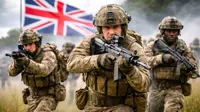India ratifies UN Conventions on corruption, organised crime
13 May 2011
India has ratified the United Nations Conventions on corruption and transnational organised crime and its three protocols. The convention on corruption and the convention on transnational organised crime are complementary.
The convention on corruption prescribes a comprehensive set of standards, measures and rules that all countries should apply in order to strengthen their legal and regulatory regimes to fight corruption.
The convention details measures to prevent corruption, including the application of prevention policies and practices, the establishment of bodies for that purpose, the application of codes of conduct for public servants, and public procurement. It recommends promotion of transparency and accountability in the management of public finances and in the private sector, with tougher accounting and auditing standards.
Measures to prevent money-laundering are also provided for, together with measures to secure the independence of the judiciary, public reporting and participation of society are encouraged as preventive measures. The convention recommends the state parties to adopt such legislative and other measures as may be necessary to establish a whole series of criminal offences.
The convention lists the following to be acted against in the state sector:
- Corruption of national or foreign public officials and officials of public international organisations;
- Embezzlement, misappropriation or other diversion by a public official of any public or private property;
- Trading in influence; and
- Abuse of functions and illicit enrichment.
In the private sector, the convention calls for the creation of offences of embezzlement and corruption. There are other offences relating to laundering the proceeds of crime, handling stolen property, obstructing the administration of justice, and participating in and attempting embezzlement or corruption.
The UN Convention on transnational organised crime recognises the need to foster and enhance close international cooperation in order to tackle those problems. The convention is further supplemented by three protocols, which target specific areas and manifestations of organised crime, namely, protocols to combat: trafficking in persons, migrant smuggling and illicit trafficking in firearms.


















